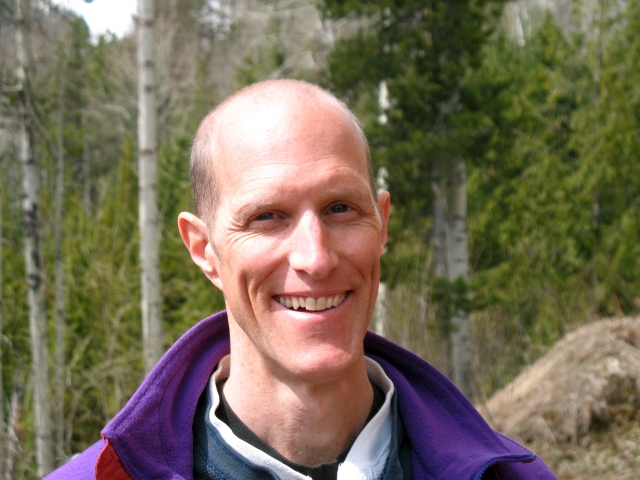From hot Cancun to pretty-darn-warm Rossland: Aaron Cosbey talks sustainability
Fresh from the stale surroundings of tourist-laden Cancun, Mexico, Sustainability Commission member Aaron Cosbey checked in with the Telegraph this week to bring us up to speed on the environmental side of the local sustainability coin.
While ‘fatigued’ may not be the best descriptor to characterize Cosbey’s post-conference reaction to the bureaucracy and politicking typified by yet another lack lustre United Nations Conference on Climate Change, the frustration in his voice, while moderated, is evident.
“More progress was made than in Copenhagen, but there is still so much more work that needs to be done,” he concludes, speaking to a slow process made that much slower by political posturing and lines in the sand. The lines are multiplying even as desertification and other symptoms of climate change become more pronounced.
Still Cosbey sounds like a man happy to be home, and able to contribute locally.
Clarifying the role of the SC, Cosbey reminds us that while the Sustainability Commission works as something of an overseer, “the commission operates by working alongside its individual task-forces, and we work on specific projects, too. The emphasis is on involvement and engaging the public.”
Pressed for details on one of the ongoing projects currently underway, Cosbey touches on the Climate Change Adaptation project. Aimed at identifying possible scenarios that may play out in Rossland over the next hundred or more years, this task force, in collaboration with the SC, have identified vulnerabilities, and are focussing on setting priorities for how to address these climate change-related issues.
“That work generated 19 priority recommendations for council. Now we’re working on implementation; we’re also reporting on the state of Rossland, creating an updated “snapshot” of Rossland.
“We want to do a repeat of the snapshot every couple years as it deals with the whole state of Rossland: water quality, transportation, protected areas, per capita energy consumption and so on. It changes all the time, so by taking or creating a picture that is accurate here and now, a baseline will be established, a reference point to help develop long term applications and action.”
Of the four task forces, Water Stewardship and Energy clearly exhibit a green focus, and the importance of crunching current numbers relates well to the current trends represented by the flow of both water and energy, be they in a creek bed, knob and tube, or fuel prices at the pump.
Cosbey is cognisant of the difficulties associated with gathering something akin to real-time data, but cites significant achievements he feels the group has already accomplished.
“Mapping sensitive creek habitats, water metering on streams, calculating flow-rates: so much has been accomplished already. [The Sustainability Commission and task forces] have also done events with Stream-Keepers educating our youth, and there has been good public outreach.”
Given that the Water task force’s focus is on supply and demand; water metering; public education; consulting; rate structures; the issue of onsite retention of water; and so on, it is mountain spring crystal-clear where economics and environmental concerns align. Rain and other forms of precipitation and their catchment are one way to reduce the need for new or improved wastewater/storm drains, and, ideally, take some of the sting out of an as yet unrealized (and perhaps borderline mythological) district liquid waste management plan.
Permeable landscaping, anyone? Water is a lot better off percolating through the soil than adding to the volume of H2O rushing downhill for treatment that requires energy, labour, new infrastructure and cold, hard cash. The Water Task Force is looking at rainwater harvesting and retention, and whether one approaches the concept from a dollars-and-cents stance or a reuse-the-resource approach, these are ideas worth exploring.
On the energy front, the Energy Task Force, “…did an energy audit last year and are focusing on both the City of Rossland as a corporate entity and on residential energy use, too. [The task force] is working with Fortis and Terasen to bring incentives to residents, examining the viability of electric vehicles widespread introduction locally, demonstration projects, electric vehicles purchasing, how to reinstate the car/van pool system, and so on. Transportation figures in to a lot of what they do. Their survey actually showed that approximately 60% of Rossland residents leave town to commute to work. Public transport improvements need to take place.”
Aware of the hurdles and pitfalls that remain, Cosbey is positive about the process and the eventual outcomes. Unlike the bickering, back biting international community, he feels that Rossland is well on its way to realizing its vision for sustainability.
“The idea is that we’re always checking back with the Visions to Action plan. It’s a good vision for Rossland, and it’s a pretty good document.”


























